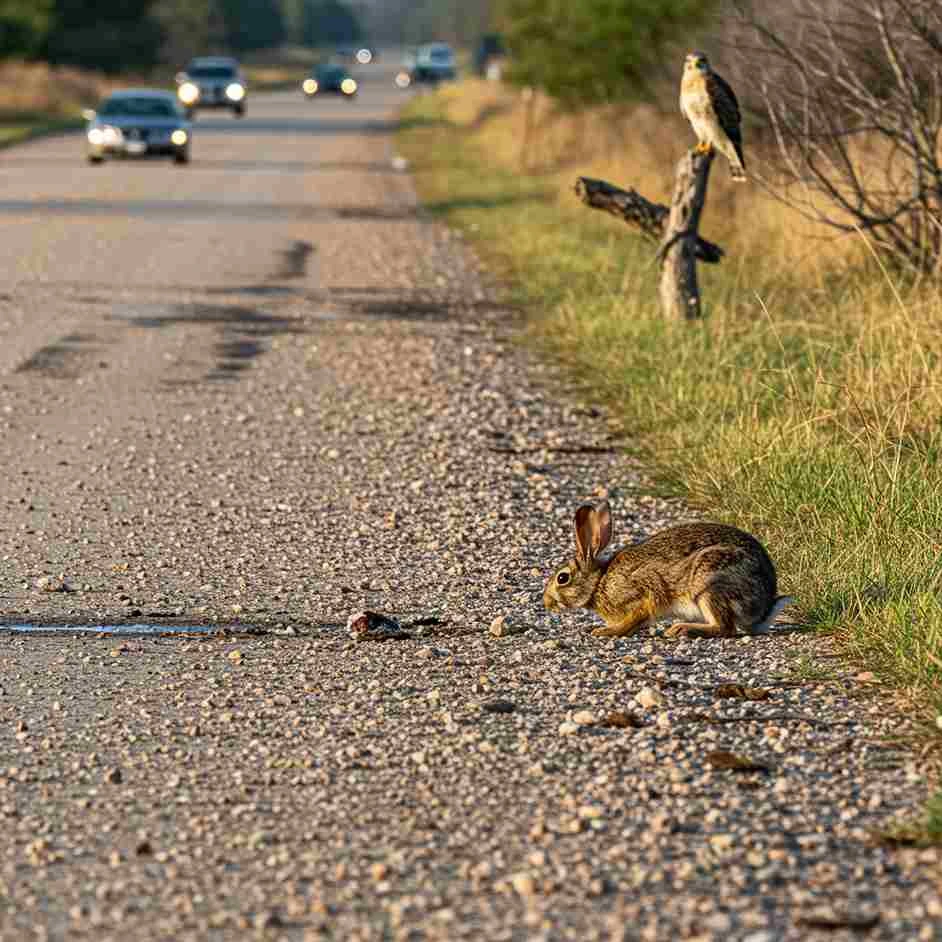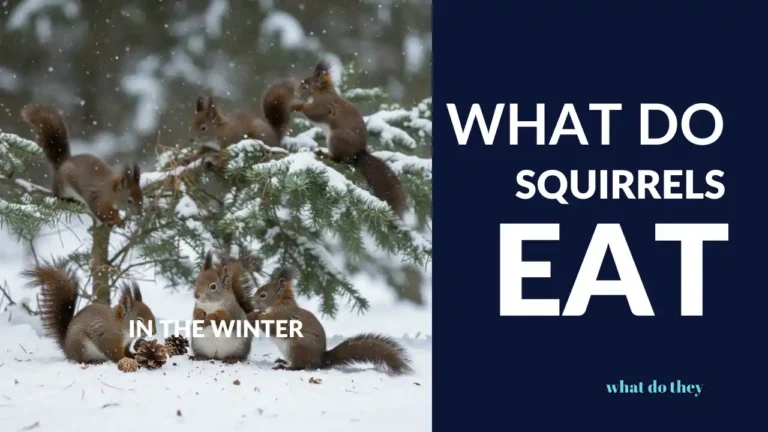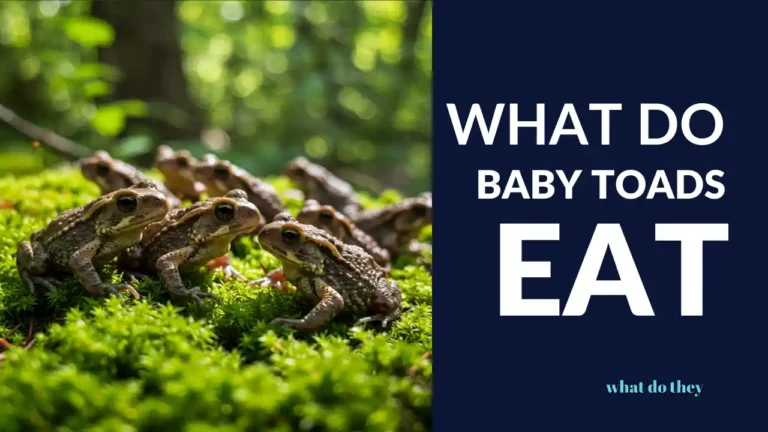What do rabbits eat from gravel road areas that might attract them to these seemingly barren places? If you’ve noticed rabbits frequenting roadside areas, you might wonder what food sources these environments provide. If you love to get to know about what different animals and insects eat, take a look at the following:
What Do They has prepared this blog so you’ll learn the answer to what do rabbits eat from gravel road, the surprising variety of plants and other edibles that rabbits find, why these areas sometimes attract rabbits, and whether these food sources are safe for them.
Why Rabbits Visit Gravel Roads
Rabbits are primarily drawn to gravel roads and their edges for several reasons:
- Access to specific plants that thrive in disturbed soil
- Mineral content in gravel and dust
- Border areas between roads and fields or forests
- Warmth from sun-heated surfaces
- Safe observation points for predator detection
Plants That Grow Near Gravel Roads

Common Edible Roadside Plants
What do rabbits eat from gravel road edges most commonly? Rabbits are particularly attracted to:
- Dandelions
- Clover
- Plantain (the weed, not the fruit)
- Chickweed
- Wild grasses
- Young bramble shoots
- Henbit
- Dead nettle
- Wild strawberry leaves
- Yarrow
These plants often flourish along the edges where gravel meets soil, creating a natural feeding zone.
Seasonal Variations in Roadside Vegetation
What rabbits eat from gravel road areas changes throughout the year:
Spring
- Fresh grass shoots
- New clover growth
- Early wildflowers
- Dandelion leaves and flowers
Summer
- Mature grasses
- Clover blossoms
- Plantain
- Various herbs and weeds at peak growth
Fall
- Seed heads from grasses
- Remaining green vegetation
- Fallen berries from nearby shrubs
- Final growth before winter
Winter
- Dried plant stems
- Bark from roadside shrubs
- Any persistent green growth
- Roots accessed through digging
Minerals and Other Non-Plant Items
Surprisingly, when we examine what do rabbits eat from gravel road surfaces themselves, we find they may consume:
- Small amounts of grit (helps with digestion)
- Road salt residue (attracts rabbits but can be harmful)
- Clay or soil (possibly for mineral content)
- Fallen seeds from passing vehicles
Dangers of Roadside Foraging

While rabbits do find food along gravel roads, several hazards exist:
Chemical Concerns
- Road dust contaminants
- Herbicide exposure from road maintenance
- Vehicle fluid leakage
- Road salt and de-icing chemicals
Physical Dangers
- Increased predator exposure
- Vehicle traffic
- Sharp gravel potentially causing mouth injuries
- Risk of ingesting indigestible materials
Roadside vs. Natural Habitat Food Sources
| Food Type | Roadside Availability | Natural Habitat Availability | Nutritional Quality |
|---|---|---|---|
| Clover | High | Moderate | Good |
| Grasses | Abundant | Abundant | Good |
| Herbs/Weeds | Varies seasonally | Varies seasonally | Good to excellent |
| Woody Plants | Limited | Abundant | Fair |
| Minerals | Available as grit | Available in soil | Supplementary |
Wild vs. Domestic Rabbits

What do rabbits eat from gravel road areas differs between wild and domestic rabbits:
Wild Rabbits (Cottontails, Jackrabbits)
- More experienced at selecting safe plants
- Better adapted to seasonal variation
- More likely to supplement diet with minerals from road grit
Domestic Rabbits (Escaped or Released)
- Less discriminating in plant selection
- May eat harmful items
- More vulnerable to road hazards
- Less adapted to seasonal food scarcity
Safe Alternatives to Roadside Feeding
If you’re concerned about rabbits feeding along gravel roads, consider:
- Creating natural habitat areas away from roads
- Planting rabbit-friendly vegetation in safe locations
- Providing mineral blocks for domestic rabbits
- Installing rabbit-proof fencing to keep pets away from roads
How to Identify if Rabbits Are Feeding on Roadsides
Evidence that rabbits are eating from gravel road areas includes:
- Rabbit droppings near road edges
- Clipped vegetation with clean, angled cuts
- Small digging marks in soil adjacent to gravel
- Rabbit sightings during dawn and dusk
- Tracks in dust or mud
Encouraging Safer Rabbit Feeding
To address what do rabbits eat from gravel road areas and provide safer alternatives:
- Allow native plants to grow in yard borders
- Create brush piles away from roads
- Plant clover, grasses, and herbs in safe areas
- Maintain chemical-free zones for wildlife feeding
- Provide water sources away from roads
Regional Differences in Roadside Vegetation

What rabbits eat from gravel road edges varies by region:
Northern/Cold Climates
- Hardier grasses
- Fewer year-round options
- Birch and willow shoots
Southern/Warm Climates
- Greater plant diversity
- Longer growing season
- More consistent food availability
Arid Regions
- Drought-resistant plants
- More widely spaced vegetation
- Greater reliance on morning dew for moisture
So the Answer to What do Rabbits Eat from Gravel Road is…
As we’ve discovered what do rabbits eat from gravel road environments, these areas provide a surprising variety of plants including clover, dandelions, grasses, and other vegetation that grows where disturbed soil meets natural areas. While gravel roads might seem like unlikely feeding grounds, the border zones often host an abundance of plants that rabbits find appetizing.
Understanding what attracts rabbits to these potentially dangerous areas can help us create safer alternatives in our yards and communities. By providing natural food sources away from roads, we can help ensure these fascinating creatures can satisfy their dietary needs without the risks associated with roadside foraging.
Whether you’re a wildlife enthusiast or simply curious about rabbit behavior, knowing what do rabbits eat from gravel road environments gives us insight into how these adaptable animals make use of human-altered landscapes for their survival.








3 Comments